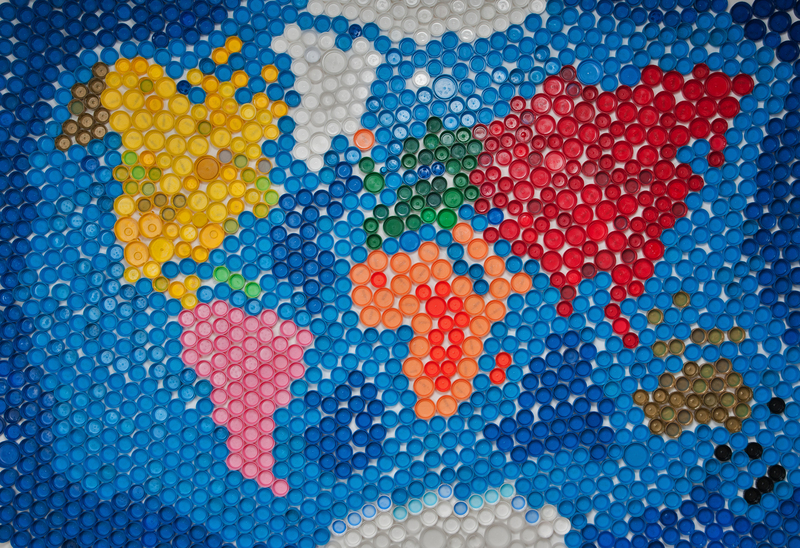Adopt These Habits to Slash Your Plastic Use
Plastic pollution has become a global crisis, infiltrating our oceans, food chains, and even the air we breathe. But each of us holds the power to make a positive impact by transitioning towards a more sustainable lifestyle. Whether motivated by environmental concerns, health reasons, or a desire to reduce waste, adopting new habits to limit single-use plastics makes a lasting difference. In this comprehensive guide, discover practical, actionable ways to slash your plastic use and lead an eco-friendlier life.
Why Reducing Plastic Use Is Essential
Plastics are everywhere: in packaging, household goods, and even clothing. Unfortunately, single-use plastics--such as straws, bags, and bottles--often end up polluting landfills and waterways for centuries. Microplastics, a byproduct, are now found in the remotest places on earth, posing risks to wildlife and humans alike.
- Environmental Impact: Every piece of plastic ever made still exists, contributing to oceanic and terrestrial pollution.
- Health Concerns: Toxins from degrading plastics can leach into food, water, and soil, impacting our well-being.
- Economic Cost: Governments and communities spend billions annually cleaning up plastic waste.
Ready to make a change? These evidence-based, easy-to-adopt strategies will help you reduce your plastic consumption and live more sustainably.

1. Embrace Reusable Alternatives
Swapping disposable items for reusable counterparts is one of the most effective ways to reduce plastic usage. Here's how:
- BYOC (Bring Your Own Containers): Carry stainless steel, glass, or silicone containers for takeout, leftovers, or deli purchases. Many cafes and restaurants now support this sustainable shift.
- Invest in a Quality Water Bottle: Stainless steel or BPA-free water bottles are durable, cost-effective, and healthier than single-use plastic bottles. You'll never need bottled water again!
- Reusable Shopping Bags: Tote bags and mesh produce sacks are stylish, strong, and eco-friendly. Keep a few in your car or backpack, so you never forget.
- Opt for Beeswax Wraps: These make a fantastic replacement for plastic wrap when storing sandwiches and leftovers. They're washable, reusable, and compostable.
- Straw Swap: Keep metal or bamboo straws on hand for drinks on the go.
Adopting reusable options drastically cuts down your plastic waste stream and encourages businesses to provide sustainable products.
2. Shop Smart: Buy Less Plastic Packaging
Up to 40% of all plastic produced is for packaging--most of it used just once! Here's how to minimize your packaging footprint:
- Buy in Bulk: Grains, legumes, nuts, and spices can be found at bulk food sections in many supermarkets or specialty stores. Remember your own containers or bags.
- Choose Cardboard or Paper: Select products packaged in paper, cardboard, or glass rather than plastic. They're easier to recycle and break down more quickly.
- Visit Farmers' Markets: These typically offer fresh produce without excess packaging. Local shopping also reduces the carbon footprint.
- Avoid Single-Serve Items: Larger quantities mean less packaging overall. Opt for family-size yogurt or snacks, then portion them into reusable containers.
Get into the habit of scrutinizing packaging before you buy. Choose products with minimal or no plastic and send a message to companies demanding sustainable packaging options.
3. Adopt a "Refuse, Reduce, Reuse, Recycle, Rot" Mindset
Often referred to as the 5 R's of Zero Waste, this mindset prioritizes cutting plastic at the source.
- Refuse: Politely decline plastic straws, cutlery, or unnecessary packaging wherever possible.
- Reduce: Limit your consumption of plastic-wrapped or disposable goods.
- Reuse: Repurpose jars, bottles, or containers for storage, crafts, or gardening.
- Recycle: Read local recycling guidelines to ensure you're sorting plastics correctly--recycling facilities can only process clean, accepted plastics.
- Rot: Compost organic waste to avoid plastic binliners and support soil health.
Following these steps daily helps you cut single-use plastic effortlessly--a small shift that quickly becomes a lifestyle.
4. Green Your Personal Care and Cleaning Routines
Bathroom and cleaning supplies are notorious for excessive plastic packaging. Take control with these swaps:
- Switch to Bar Soaps: Bar soaps--often packaged in paper--replace countless plastic bottles of shampoo, conditioner, and body wash. Try shampoo bars or conditioner bars for haircare too!
- DIY Cleaning Products: Reuse glass spray bottles or jars to make homemade cleaners with vinegar, baking soda, and essential oils.
- Bamboo Toothbrushes: Bamboo composts naturally, while plastic sticks around forever. Find brands with plastic-free packaging for zero waste dental care.
- Reusable Face Rounds: Cloth or bamboo cotton pads eliminate the need for plastic-packed disposables for makeup removal and skincare.
Adopting these eco-friendly habits significantly reduces your plastic footprint while minimizing exposure to harsh chemicals and fragrances.
5. Support Eco-Conscious Brands and Initiatives
Your spending choices have real-world power. Companies are beginning to respond to consumer demand for plastics alternatives:
- Look for Certified B Corps: These brands balance profit and purpose. Many use recycled materials, minimal packaging, or innovative plastic-free solutions.
- Plastic Offset Initiatives: Some companies offset their plastic use or recover ocean-bound plastics for every product sold.
- Support Refill Stations: From soap to laundry detergent, many cities now offer refill stores that allow customers to use their own containers.
Research brands you love and choose to buy from businesses committed to reducing plastic waste.
6. Get Involved: Advocate and Educate
Reducing your plastic use is a personal responsibility, but real change happens on a larger scale through community and policy:
- Participate in Clean-Up Events: Beach or river clean-ups raise awareness and bring tangible improvements to local environments.
- Advocate for Change: Support legislation to ban single-use plastics, improve recycling systems, and invest in sustainable infrastructure.
- Share What You Know: Educate friends, family, and coworkers about ways to ditch plastics and adopt green habits.
Your voice can be a catalyst for change in schools, workplaces, and communities, amplifying efforts to reduce society's plastic dependence.
7. Make Technology Work for You
Modern tools can help you track and reduce plastic usage:
- Apps: Several apps track waste reduction progress, suggest eco swaps, and locate zero waste stores.
- Digital Planners: Plan plastic-free shopping lists and meal plans with the help of technology to avoid impulse plastic purchases.
- Online Communities: Connect with others committed to slashing their plastic use for encouragement, tips, and ideas.
Leveraging technology keeps you accountable and inspired throughout your plastic reduction journey.
8. Choose Clothing Carefully: Mind Your Microplastics
Textiles--especially synthetics like polyester or nylon--are significant sources of microplastic pollution. With every wash, tiny fibers enter waterways and food chains. Here's how to minimize:
- Opt for Natural Fibers: Cotton, linen, wool, and hemp biodegrade naturally, unlike synthetic fabrics.
- Wash with Care: Use a Guppyfriend bag or install a microfiber filter on your washing machine to capture fibers.
- Shop Second-Hand: Extend the life of clothing and reduce the demand for new, plastic-based textiles.
Responsible clothing choices are an often-overlooked aspect of slashing your plastic use, but incredibly impactful for the planet.
9. Mindful Eating Habits for a Plastic-Free Kitchen
The kitchen can be ground zero for plastic reduction. Try these strategies:
- Meal Prep: Planning meals reduces reliance on pre-packaged convenience foods.
- Preserve and Store Food Plastic-Free: Use glass jars, stainless steel tins, or beeswax wraps rather than cling film or single-use bags.
- Buy Direct from Producers: Join a CSA (community-supported agriculture) or visit a local farm to reduce packaging.
- Bake Your Own: Homemade bread, snacks, and yogurt avoid store-bought packaging--and taste better!
Shifting habits in the kitchen can dramatically slash household plastic consumption and promote healthier eating.
10. Plan for the Unexpected
Plastic-free living isn't about perfection, but preparation. Consider assembling a simple "zero waste kit":
- Reusable cutlery set
- Cloth napkin
- Collapsible coffee cup
- Snacks in reusable containers
With these tools, you're always ready to avoid single-use plastics, wherever life takes you.
Overcoming Common Barriers to Reducing Plastic Waste
Transitioning to a plastic-free lifestyle isn't always straightforward. Here are some common challenges--and ways to overcome them:
- Convenience: Pre-packaged goods are everywhere. Plan ahead by keeping reusable bags, containers, and cutlery within easy reach.
- Cost: While some eco-friendly products can be pricier, they save money in the long run as they're designed for continued use.
- Social Situations: Don't hesitate to educate others about your habits--you may inspire change! When attending events, politely request alternatives or bring your own zero waste items.
- Lack of Access: Not all towns have bulk food stores or refilling stations. Start with changes you control, like purchasing reusable items online or making DIY products at home.
Adopting plastic-reducing habits is a journey, not a destination. Start small and build confidence as you progress.

Measuring Your Progress: Celebrate Wins
Staying motivated in your plastic-free mission is easier when you witness your own growth. Try these strategies:
- Track Waste Output: Before and after adopting new habits, measure your weekly or monthly trash, noting reductions in plastics.
- Join Challenges: Many online communities host "Plastic Free July" or "Zero Waste Week" challenges for accountability and fun.
- Share Your Journey: Post your successes and tips on social media to inspire others and celebrate your dedication.
Conclusion: The Ripple Effect of Reducing Plastic Waste
Small individual actions have enormous collective impact. As you adopt habits to slash your plastic use, you not only preserve ecosystems and protect wildlife but also contribute to a healthier, more sustainable future for all. The journey towards minimal plastic use demands mindfulness and persistence, but every effort counts--at home, at work, and on the go.
Remember: There's no "perfect" plastic-free life--progress is what matters.
Begin today by adopting one or two new habits. With every refill, refusal, and reuse, you're leading the charge to a cleaner, greener planet!